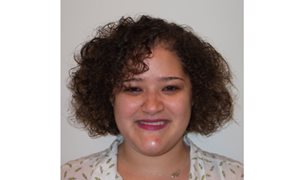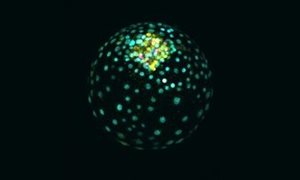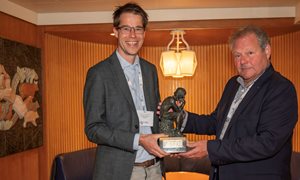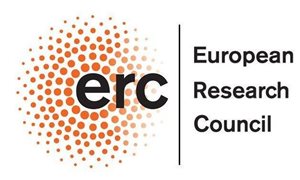 In order to reduce cancer mortality, there is a great need for new treatments. In the last few years, there have been many studies into immunotherapy.
In order to reduce cancer mortality, there is a great need for new treatments. In the last few years, there have been many studies into immunotherapy.
Tim Hutten, theme Cancer development and immune defense has been studying the interactions between immune cells and cancer cells. He carried out research into two receptors that could be the first step toward creating a cancer vaccine. Such a vaccine could stimulate the body’s immune cells to destroy cancer cells. Hutten conducted his research on culture cells in a laboratory. Further research will reveal whether the vaccine can be manufactured and whether it is safe. Hutten defended his PhD thesis on 18 May 2018.
In the past five years, the application of immunotherapy has gone through a developmental acceleration. Hutten studied the role of dendritic cells against different forms of cancer. Dendritic cells are part of our immune system. In dendritic cell vaccination, dendritic cells are injected into the patient’s body. These cells recognize foreign bodies, such as tumors. They remove protein-based parts of the tumor cell and present these on their surface. Other immune cells recognize this signal, causing them to destroy the tumor cell.
A new receptor
Hutten used a receptor (CLEC12A) on the dendritic cells to activate the immune cells. Hutten: “I bound pieces of cancer cells to antibodies. These antibodies fit perfectly on the CLEC12A receptor. This works like a key in a lock. When the CLEC12A receptors bound to the antibodies with the pieces of cancer cells, the dendritic cells activated many more immune cells.” This receptor is a great starting point for further research into a vaccine. If such a vaccine would contain parts that can bind specifically to this receptor, the body would activate more immune cells against the tumor.
Activating and inhibiting substances
Tumor cells produce various proteins, which they deposit in their environment. Some proteins stimulate immune cells into destroying the tumor, while others, conversely, inhibit the immune cells. The sum of activating and inhibiting proteins determines how strong the immune reaction will be. Hutten also carried out research with a receptor (PD-L1) on the tumor cells that binds to an immune cell. This binding causes the immune cell to stop its attack against the tumor cell. Hutten: “This binding is something we want to impede. We have therefore inhibited the expression of the PD-L1 receptor on the cancer cell using a short piece of RNA. This caused the immune cells to remain active.”
The PD-L1 receptor also forms a starting point for further research into a vaccine. If the vaccine would contain short pieces of RNA of PD-L1, the cancer cells would form fewer bonds with the immune cells, in turn causing the immune reaction against the cancer cells to be stronger. Hutten performed his entire research on culture cells in a laboratory. It can therefore not yet be said whether these methods will work in humans nor whether they are safe. Further experiments will answer these questions.
Vaccine
Researchers at Radboudumc are currently working on a vaccine that works on both receptors Hutten used in his research. This vaccine can both activate dendritic cells and remove the immune reaction-inhibiting environment of the tumor.
Related news items

T cell immunity is directed by tetraspanin CD53
5 July 2022 T cells are immune cells that are key for the defense against pathogens and cancer. T cells depend on the membrane protein CD45 to initiate T cell receptor signaling, but how CD45 is controlled at the molecular level is poorly understood. go to page
A single protein complex balances the very first lineage decision of cells in human: towards foetus or placenta
21 June 2022 The international group of researchers spearheaded by Dick Zijlmans and Hendrik Marks together with colleagues from KU Leuven, examined which proteins are associated with the chromatin and how this affects gene transcription. go to page
Dutch Society of Clinical Chemistry Science & Innovation Award for the team of Hans Jacobs
14 June 2022 The team of Hans Jacobs pioneers on the development of personalized diagnostics to measure minimal residual disease in patients with multiple myeloma. go to page
European grants for groundbreaking Radboudumc research Professors Roshan Cools and Peter Friedl receive ERC Advanced Grant
26 April 2022The European Research Council (ERC) is awarding grants to Roshan Cools and Peter Friedl, both professors at Radboudumc. While Cools will investigate how brains control behaviour in (stressful) situations, Friedl will work on developing a new cancer therapy.
go to page
Saponin-based adjuvant-induced dendritic cell cross-presentation is dependent on PERK activation published in Cellular and Molecular Life Sciences
20 April 2022 Lisa Huis in ‘t Veld, Nataschja Ho and colleagues from the team of Gosse Adema published in Cellular and Molecular Life Sciences that Saponin-based adjuvant-induced dendritic cell cross-presentation is dependent on PERK activation. go to page
Rubicon grants awarded to three RIMLS researchers
19 April 2022Three researchers have received Rubicon funding from NWO/ZonMw. This will enable Elke Muntjewerff, Laura de Vries and Laurens van de Wiel to do research at a foreign research institute for the next two years.
go to page